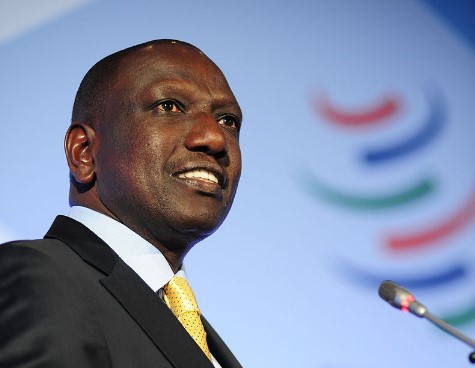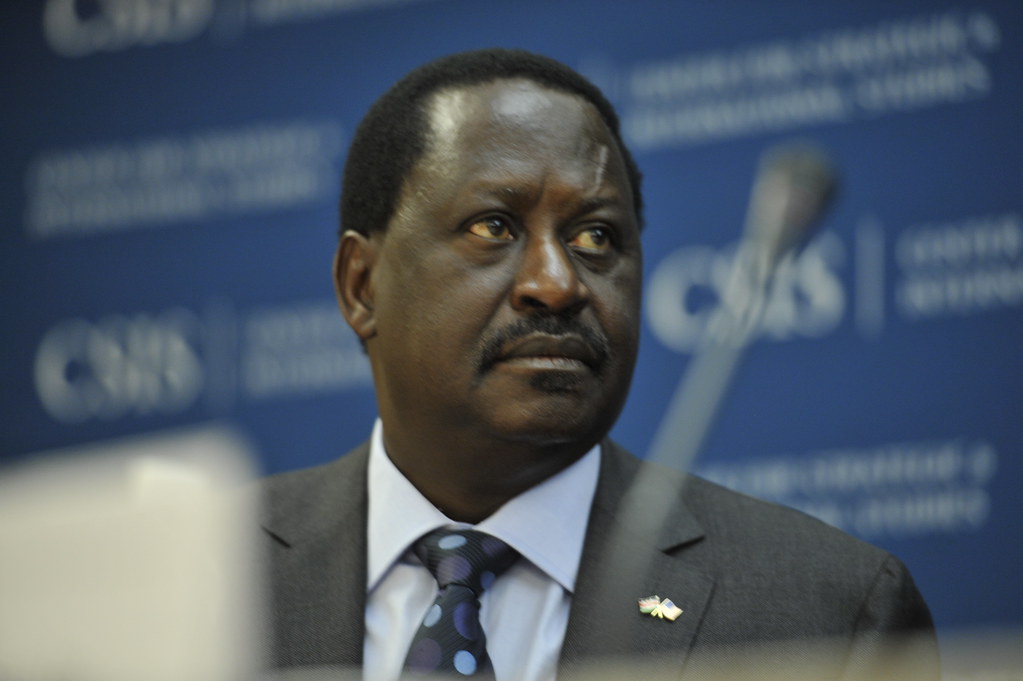Kenya: Ruto and Odinga rotten to the core – revolutionary alternative needed!
William Ruto was sworn in as Kenya's fifth president on Tuesday 13 September, a week after the Supreme Court rejected a challenge by his opponent in a close-fought election, in which Ruto received 50.5 percent of the vote against 48.8 percent for Raila Odinga. Neither of these reactionary bourgeois politicians offered any way forward for the Kenyan masses, who face increasingly intolerable conditions.
Odinga’s team made allegations that the IEBC electoral transmission system had been hacked and the results tampered with. Azimio la Umoja (“Resolution for Unity”), a political coalition headed by Odinga, further accused the Independent Electoral and Boundaries Commission and Deputy President William Ruto of colluding and “subverting the will of the people”. These claims were however thrown out by the Supreme Court, which affirmed Ruto’s victory.
This year’s election witnessed relative calm, with most people displaying apathy towards the entire process. The majority of Kenyans have dismissed the current political elite as selfish, pursuing their narrow interests at the expense of the common people. The Kenyan working class feels there is nothing to be gained from these elections, when the different factions of the elite will wine and dine together afterwards, irrespective of the result. The attitude was reflected in voter participation, with one of the lowest turnouts in recent history.
Both campaigns saw candidates use pseudo-left-wing phraseology in their efforts to win over the masses. This superficial, reactionary ‘populism’ offered no real solutions for the working class. The Azimio camp campaigned on a ‘third-liberation’ platform. According to this formulation, the first liberation brought ‘independence’ from the British colonists, while the second liberation brought multi-party democracy. The third ‘liberation’ will supposedly ‘transform’ the economy. However, the solutions offered were reformist and state welfare programs that offered no concrete challenge to the pillars of Kenyan capitalism. With the backing of the incumbent president, Uhuru Kenyatta, Odinga’s well-oiled campaign did not gain as much traction as in previous elections, with Odinga carrying the burden of the failures of the current regime.
The Kenya Kwanza coalition struck a chord with some poor and desperate Kenyans from the more backward layers of society, who hope to one day ‘hustle’ themselves into positions of influence and privilege. With anger and frustration at the useless elites running high due to the economic crisis, exacerbated by the coronavirus pandemic and the Ukraine War; and given the lack of any genuine working-class alternative, it is no surprise that some layers of the Kenyan population bought into the ‘hustler narrative’.
Azimio and Kenya Kwanza: two sides of the same coin
The antagonism between the Azimio and Kenya Kwanza political coalitions was one of form and not content. The fact is that the two coalitions are rotten defenders of capitalism and imperialism. Freedom from the current political, economic and social problems plaguing Kenya will not come from either of these gangs
In fact, to struggle for social and national liberation is to struggle against the domination of Kenyan politics by these two political coalitions, which are really two sides of the same capitalist coin. This is clearly confirmed by the fact that politicians from the losing Azimio coalition have already jumped ship, even before the dust of the electoral process settles. This sharply exposes the two coalitions as empty shells with nothing to offer the Kenyan masses.
It has been 59 years since Kenya gained ‘independence’ from British colonialism and a black majority government came into power. The anti-imperialist aspirations, for which the Kenyan people shed their blood over generations, continue to be blatantly betrayed by the successive regimes that have governed the country since independence.
Bourgeois elections have taken place in Kenya since 1920, when the first election to the legislative council was held. In 1961, the first election under the present system of universal suffrage was held. Subsequent national elections in Kenya have been used and continue to be used to legitimise and perpetuate the interests of the colonial and imperialist powers, the capitalist system and the ruling elites in power.


